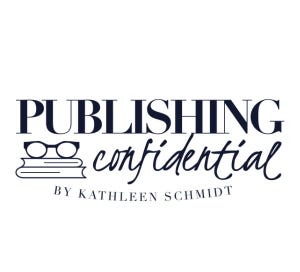Consumers are Mad at the Media—Publishers Must Pay Attention
It’s time to throw out the old playbook.
Over the past few months, I’ve noticed a sea change in how consumers view legacy media (legacy meaning traditional). It began when the opinion pages of newspapers pressured President Biden to drop out of the 2024 election and continued through the fall as the same media attempted to “sane-wash” the actions of Donald Trump and his cronies. When outlets like The Washington Post and Los Angeles Times refused to endorse Kamala Harris, things came to a head. The fallout for The Washington Post was swift: they lost over 250,000 subscribers in less than a week. As we move towards Inauguration Day, things are not much better. Instead of blunt headlines about Trump’s cabinet picks, most media use words that soften the blow. Never mind their obsession with Biden’s recent pardon of his son, Hunter—which I won’t dive into here. Additionally, as Oliver Darcy reported in his excellent newsletter Status, morning show viewership is approaching extinction. The message is clear: consumers do not rely on traditional media for news, which will not change.
According to Pew Research, at least half of adults get news from social media. Gen Z? They consume news on TikTok. Granted, I am extremely online and a self-declared media junkie, so none of this surprises me. It does surprise me that publishers aren’t meeting this moment and changing their marketing and publicity approach. Sure, traditional media has its place, but it is clear that consumers are looking for information elsewhere. My news consumption habits have drastically changed. The first things I read when I wake up are Media Star (a free newsletter where media news is curated), Status, and Brian Stelter’s Reliable Sources newsletter for CNN. After that, I check my inbox on Substack, read several newsletters, and quickly scrolled to Blue Sky, Threads, and Instagram. I usually don’t skim The New York Times, Washington Post, and The Wall Street Journal until later. During my work day, I have NBC News Now—which did a segment today on how brick-and-mortar bookstores are “back”—on in the background (because I now have a TV on my fridge that carries select streaming news). TikTok is my little treat at the end of the day. If that sounds like a lot, it is. Knowing what’s happening worldwide and in the media is also my job. I’m not the average consumer, but as a PR and Marketing Consultant, these habits inform me about what is best for my clients.
Consumers want to avoid traditional media. Cord cutting has increased, and linear (non-streaming) television is on life support. I don’t write this as a doom-and-gloom scenario. Instead, these are facts that the publishing industry must face. Hearst recently laid off over 200 employees, and the excellent books editor at Esquire was a casualty. CNN is about to enforce its most significant layoffs to date. MSNBC and CNBC are being spun off into a separate company within Comcast, and no one is certain what that will look like. The industry will be in trouble if publishers do not pay attention. Reaching a book’s intended audience is not as simple as creating the same publicity template. It simply no longer works. Not only are hundreds of publicists pitching the same people with different books but there is not enough room in the media to cover most of them. Yet publishers continue churning out an astronomical number of books each year, hoping something will stick. This is not sustainable, which is why up to 70% of publishers’ sales come from their respective backlists (i.e., familiar titles that sell well year over year).
Publishers must not be the only ones who must change their media expectations. Agents, authors, and retailers must also consider what is happening and adjust their expectations. Yes, a review in The New York Times signifies something, but how many books does it sell? Digital ads? Sure, they’ll receive a notable number of clicks, but sales conversion is rarely achieved. One could argue, “At least people are seeing the book,” but if sales don’t follow, it harms the author and the publisher’s bottom line. I recently spoke to a marketing manager at one of the Big Five. I asked them what was working. They said BookTok is hit-or-miss, so they explore influencers outside that realm. Amazon ads? Some work, some don’t. Goodreads? Giveaways are nice for visibility, but they don’t affect sales. Then they mentioned the kicker: the big bosses now wanted people from marketing to do man-on-the-street interviews with books so they could post them on TikTok. I was incredulous and reminded of when a previous boss of mine wanted me to send my department to Rockefeller Plaza during the Today Show to hand out copies of The Secret. I could not bring myself to do this, so I called 311 (NYC’s line to City Hall) and was promptly told we needed a permit (note: this was 2008). Is this all that publishers can come up with? Do you want understaffed, underpaid employees to stop people on the street? I don’t think so.
I know authors who read this are probably thinking it’s all terrible. It’s not! The discussion around author platforms keeps changing. Some colleagues believe novelists don’t need a platform to get book deals. While that may be true, they need a platform to market and sell their books. They need a way to reach their target audience directly because traditional media won’t do that for them. Yes, social media is fragmented, but it is still valuable. So are micro-targeting newsletters, BookTok influencers, Facebook groups, and podcasts. In the new year, I am pivoting more towards that kind of PR and marketing rather than getting depressed every day when I send out 50+ pitches and hear crickets. I prefer to work with authors on audience development than have to deliver disappointing news about reviews not happening. I’ve spent over half my life in an industry where the word “no” is the norm. That must change.
If I were running a marketing or publicity department right now, I would allocate staff to newsletter and podcast relations. Then, I would earmark genuinely review-driven books and allocate staff to keep things streamlined. It’s unrealistic to have ten publicists from the same publishing imprint pitching the same reviewers. Other staff members need to be assigned to author audience development. It’s fine that publishers keep churning out their own newsletters, but what is the ROI (return on investment) for them? While I’m at it, why are publishers still on X? It’s a wasteland.
As we look toward 2025, I hope the publishing industry overhauls its approach to publicity and marketing. If it does, maybe it will sell more books by non-celebrities.
END NOTES:
What I’m Reading: The Husbands by Holly Gramazio. I’m only 50 pages in!
What I’m Listening To: Christmas Music :)
What I’m Watching: Disclaimer on Apple+. This hits the spot if you’re in the mood for a good thriller series. It stars Cate Blanchett and centers around a book. What’s not to like?
What I’m Buying: I gave in to the hype around Lamb Chop (IYKYK) dog toys and ordered this. Did you know it is the hottest dog toy? I predict these two will destroy theirs the minute they get them.
Cookie + Ruger:






Preach! And... it's so hard to sort through podcasts and Substacks and social media accounts to find that unicorn: a platform that has actual influence/engagement and isn't pay-for-play in an era where everyone and their brother is producing content.
It's doable, and it's kinda fun. It's also what I call "hand work at the factory" and takes a huge amount of time and a not small amount of savvy.
When I was working on licensed books, I had to submit a list of influencers to the licensor for approval and include why I wanted to work with them. It was exhausting and took so much time.
But, especially for a company with a brand to protect, I needed to make sure they weren't wriiting/posting about Batman or Gilmore Girls one day, and threatening to overthrow the government or promoting sketchy health claims the day before.
If I ruled the world there would be an army of interns who could a lot of that first-pass work, and publicists do further vetting and pitching.
I've used PodPitch - which is AI creepy and also a huge time saver. Services and tools like these are going to be essential if short-staffed publishers are going to have half a chance of targeting needle-moving creators.
The MOST IMPORTANT thing - that you've mentioned several times - is getting authors and managers on board. No one I've ever worked for would be happy if I spent a solid week coming up with a list of Substacks and podcasts, or for me to deliver a publicity report that didn't have any "major" media.
The culture within the houses absolutely needs to change.
This is all so excellent. I get frustrated because I feel there is a sense of elitism as well in terms of wanting to ignore the failings of mainstream media-an unwillingness of publishers (and many others) to "give in and let go" and explore a new way of doing things, which just holds everyone back. Newsletters, social media, and other things you mentioned don't get the credit they deserve, which is not to say they are perfect either, but they are worthy of investment.
Also saw this about no other than Stephen King, and thought I would share since it is connected https://www.thedailybeast.com/even-stephen-king-is-getting-out-of-the-media-business/